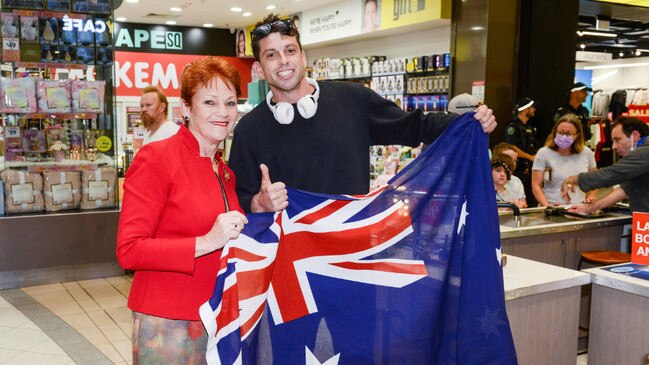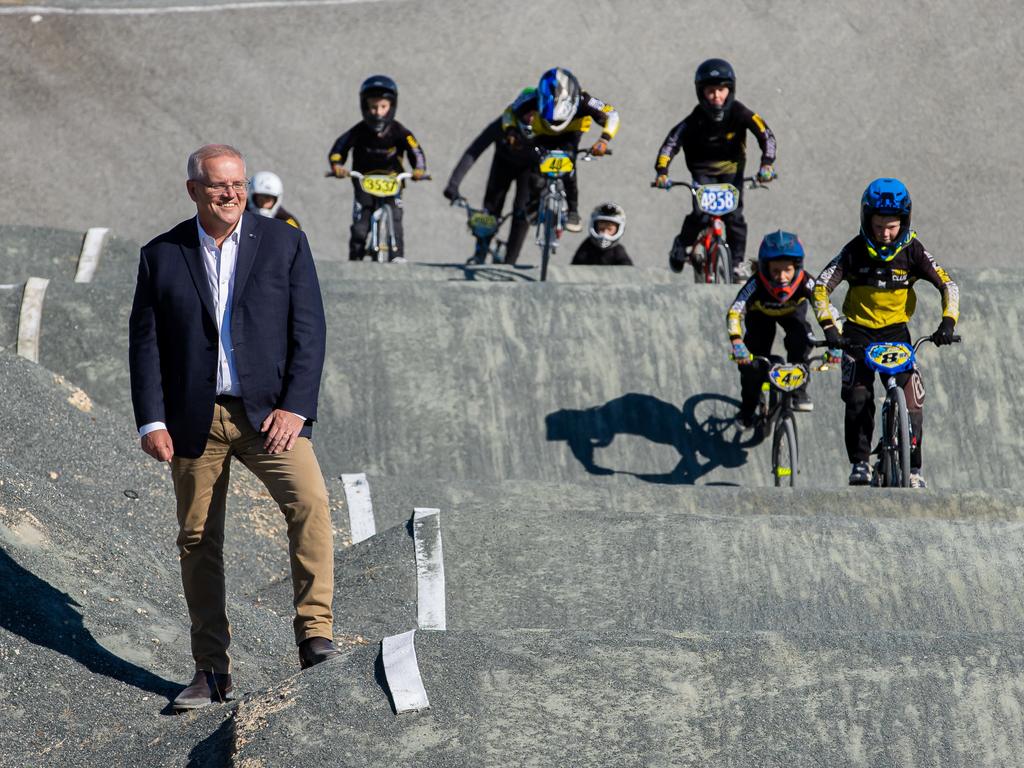Minor party leaders’ poll roles shaping up as ‘kingmakers’
While Clive Palmer and Campbell Newman may fall short, Pauline Hanson and Bob Katter are shaping up as potential kingmakers at the federal election.

Queensland’s minor party leaders are unlikely to produce a promised contest in the Senate race but they are shaping up as potential kingmakers at the federal election.
Pundits and party strategists expect One Nation leader Pauline Hanson to easily win the fifth spot on the Senate ticket, with United Australia Party leader Clive Palmer and Liberal Democrats leader Campbell Newman falling well short in their ambitions to enter the upper house.
Bob Katter, leader of Katter’s Australian Party, is a certainty of retaining his north Queensland seat of Kennedy.
Senator Hanson, with the help of the advertising blitz of Mr Palmer’s UAP, could prove decisive depending on the flow of One Nation preferences in several seats targeted by Labor.
Strategists from both Labor and the Liberals said Coalition-held seats of Longman, just north of Brisbane, and Flynn, around the central coast city of Gladstone, were on a knife-edge and would likely be decided by preferences.
In 2019, One Nation’s primary vote surged to 8.86 per cent, contributing to Scott Morrison’s surprise election win, and the most recent Newspoll had it at about 8 per cent statewide.
Internal ALP polling has One Nation’s primary vote “in the teens” in several Labor-targeted seats, including Flynn and Longman. “Pauline will hold her Senate seat on her own personal appeal, and I think One Nation are the biggest beneficiaries of Palmer’s ads, which are anti-major parties, anti-mandate,’’ an ALP strategist said.
“So while the LNP primary is down in Longman and Flynn, the LNP could get back with the flow of One Nation preferences.’’
A Liberal strategist agreed that the despite their high profile, the big-name “mavericks” were likely to be important as “kingmakers”
“These sorts of parties have been fighting over the same 15 to 20 per cent of the vote – the cranky blue-collar and blue rinse set - since the 1990s,’’ he said.
University of Queensland political scientist Frank Mols, who specialises in populism, said it was likely a party like One Nation had reached its peak.
“I would predict a similar result (to 2019),” Dr Mols said. “Looking at European populist parties, they typically get stuck at a certain level. By and large, they put a glass ceiling in place for themselves by being too radical.”
Dr Mols said Senator Hanson and Mr Palmer fitted the mould of populist leaders around the world, but Mr Katter was more of a traditional agrarian socialist.
“Katter will get back in because he’s the local man, he’s their man – they might not always agree with him but he’s a known, likeable person,” Dr Mols said.
He said it was unlikely that Katter’s Australian Party would win any further seats in north Queensland or feature prominently in the congested contest for the fourth Queensland senate seat.
Dr Mols said the “all others” vote as expressed in Newspoll, would likely tighten as the election drew near and he did not expect them to win any lower house seats in Queensland.
“As the election comes close, the margins, will narrow, it always does,” he said.
“The sense of wanting to vote for a minor party might give away in the end because people think ‘Do I want Labor to win? No, I’m going back to the Liberal Party.’ ”
Dr Mols said the impact of the populist parties might have been greater if the country were still in lockdown.
“The yellow (UAP) billboards about ‘Freedom, Freedom, Freedom’ would be more relevant if we went into lockdown again.”
University of Queensland lecturer Glenn Kefford, whose research explores political parties, elections and campaigning, said predicting the flow of minor party votes was virtually impossible.
“It did favour the Coalition last time around but the key thing to remember about minor party voters, especially One Nation voters, is that they don’t follow how-to-vote cards,” Dr Kefford said.
“You could start with the assumption that they would flow more to the Coalition than Labor, but I think you’d have to be careful with that.”
Dr Kefford said Mr Palmer’s massive advertising campaign – upwards of $60m in 2019 and expected to be $80m this year – meant the UAP, which had the fourth-highest vote nationally, had a greater influence than its polling success indicated.
“The impact Palmer has in Queensland is an agenda-setting effect,” he said.
“In 2019, he was critical of (Bill) Shorten and Labor, which amplified the messaging of the Coalition.
“It appears the messaging this year is slightly different and against both major parties, which will add to a broader dynamic where voters are dissatisfied with the major parties.”







To join the conversation, please log in. Don't have an account? Register
Join the conversation, you are commenting as Logout